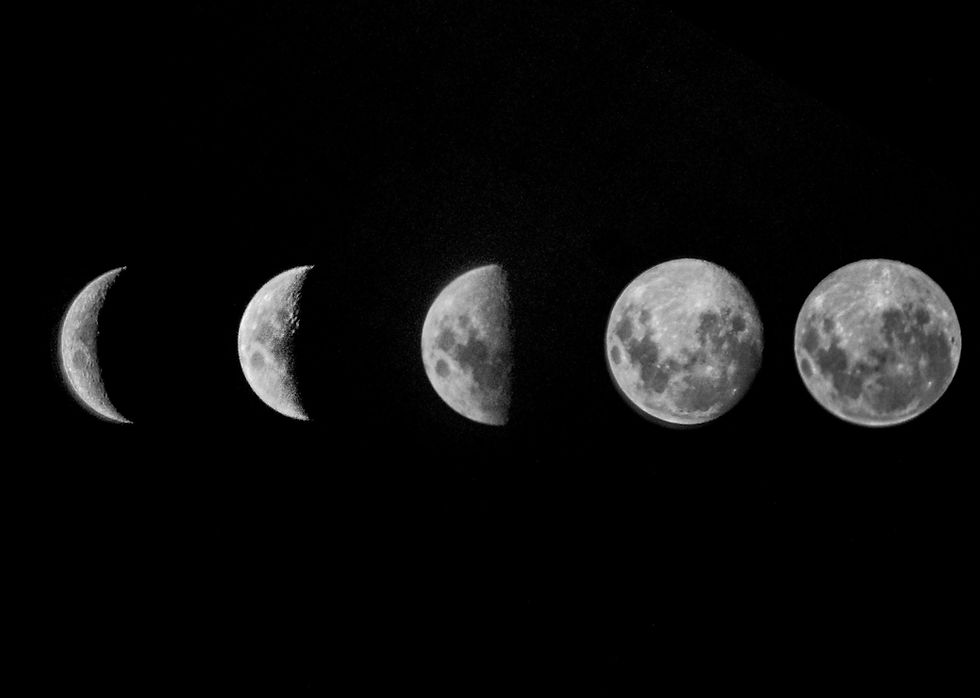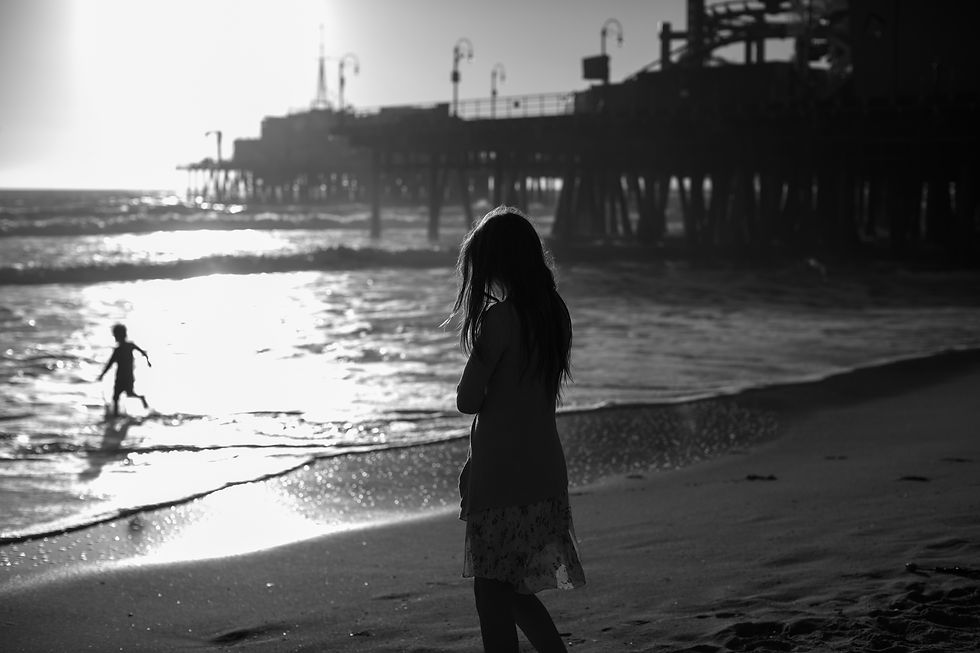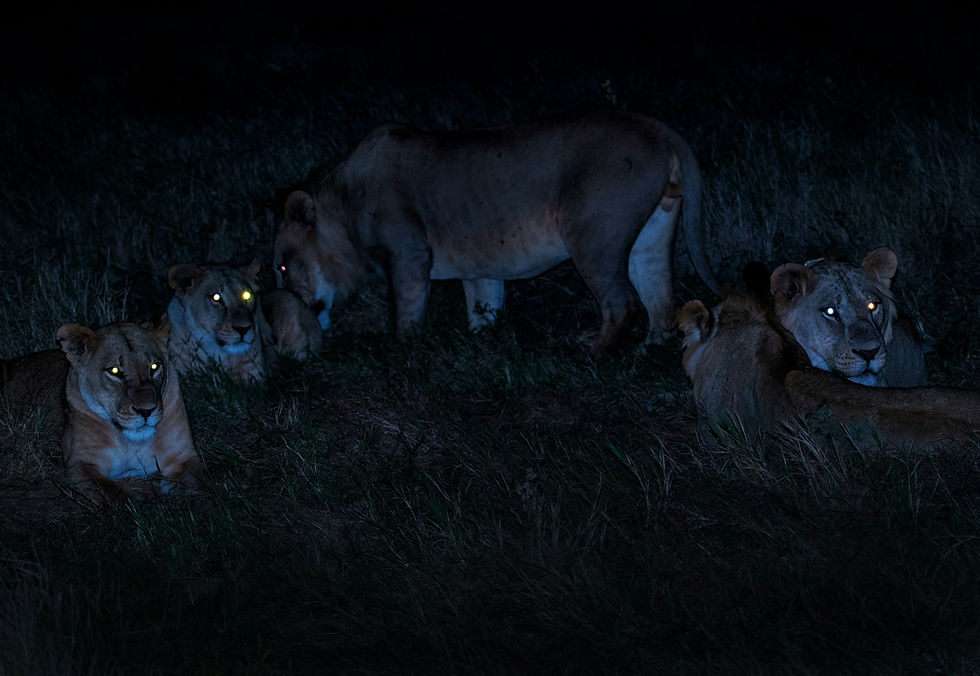The Psychology of Night Travel — Why We Crave the Dark
- The Editor

- Jul 1, 2025
- 4 min read
Updated: Jul 3, 2025
In the stillness of a moonlit forest or the hush of a midnight city square, something awakens in us. It’s subtle. Primal. A heightened sense of presence. Noctourism—a growing phenomenon in intentional travel—draws us into this hushed awareness, inviting us to explore not just the world, but the way our brains interpret it when the lights go down.
This piece isn’t just about where to go—it’s about why we go at night. What is it about the dark that calms, excites, and transforms us? And how does our biology, behavior, and emotional architecture respond differently under the stars?
Let’s step gently into the psychology of night travel and uncover why so many modern travelers are seeking experiences after twilight.
🌙 1. Darkness Reduces Overstimulation—and Our Brains Breathe Easier
Modern life is awash in sensory input: artificial lighting, bustling crowds, visual clutter. As a result, our brains remain in a semi-permanent state of vigilance. But when night falls, something rare occurs—neural noise decreases.
According to neuroscientist Dr. Andrew Huberman, exposure to darkness allows the autonomic nervous system to shift toward parasympathetic mode—our “rest and digest” state.
This can lead to:
Lower cortisol levels
Slower heart rates
Heightened introspection
Improved sensory focus
In short, the night acts as a neurological exhale. Noctourism taps into this by designing travel experiences that feel like a reset for the senses.
🧠 2. The Liminal Power of Dusk and Drowsiness
Psychologists call twilight and nighttime “liminal spaces”— transitional periods where the boundaries between real and surreal blur. This can trigger a mild dissociative state that boosts creativity and emotional openness.
That’s why nocturnal travel often evokes words like “magical,” “mystical,” or “transformational.” We're not just navigating new landscapes—we're floating between consciousnesses. Nightfall slows time. It expands space. In this altered mental state, travel becomes less about productivity and more about pure perception.

🔍 3. Low Light = Heightened Awareness
In dim settings, the brain recalibrates. Without visual dominance, other senses sharpen:
Hearing: We become attuned to ambient noises—crickets, rustling leaves, distant footsteps.
Touch: Cool air, damp stone, sand underfoot become more noticeable.
Smell: Night-blooming flowers and fireside smoke carry farther and more vividly.
Research in environmental psychology confirms that limited input leads to greater presence. This may explain why stargazing in silence or wandering a lantern-lit alleyway can feel strangely profound.
📖 4. Cultural Archetypes: The Night as Sacred, Not Scary
In many Western contexts, darkness is associated with danger. But globally, the night is revered:
In Morocco, evening calls to prayer fill the streets with reverence.
In Japan, temple gardens are illuminated to honor transience and impermanence.
In Mexico, Día de los Muertos transforms cemeteries into candlelit celebrations of connection.
Noctourism reminds us that fear of the dark is culturally constructed—and that the night can be sacred, social, and deeply moving when viewed through a different lens.

🧭 5. Evolution Hardwired Us to Watch the Stars
From a survival standpoint, early humans relied on night awareness for navigation and safety. But the stars weren’t just utilitarian—they were awe-inspiring.
Astronomers and anthropologists suggest that the act of stargazing—tracing patterns in the sky, making meaning from light—is one of the earliest cognitive rituals shared across civilizations.
This could explain why, thousands of years later, lying beneath a Milky Way sky in the Andes or the Arctic still feels like touching something ancient in ourselves.
💤 6. Travel at Night Encourages Restful Rhythms
Paradoxically, one of the most restorative things about noctourism is not the activity—but the inactivity it encourages.
We slow down.
We speak less.
We engage more with silence and stillness.
In fact, studies show that nighttime experiences—especially those involving slow movement, low light, and rhythmic soundscapes—can help regulate circadian rhythms, even across time zones.
Noctourism, then, isn’t a disruption to rest—it may be a pathway into it.

🧳 7. Noctourism Counters Burnout with Meaningful Escapism
Travelers experiencing eco-fatigue or social burnout often describe a desire to “disappear” into something quiet and unknown. Noctourism offers an antidote:
Destinations feel less performative after dark.
Expectations shift from busy sightseeing to deep sensing.
Interactions tend to feel more personal and less transactional.
In this way, night travel becomes emotionally reparative—a way to reconnect with awe, curiosity, and solitude.
🖼️ 8. Memory-Making Is Enhanced at Night
Emotional experiences tied to strong visual or sensory stimuli are more likely to be stored in long-term memory, according to sleep and memory researcher Dr. Sara Mednick.
Because night settings are unusual for most travelers, they become “sticky” in the mind. The glow of bioluminescent plankton. The echo of chanting in a mountain monastery. The smell of cinnamon in a night market. These novel inputs, especially when paired with stillness, are more likely to form vivid, lasting imprints.

🔦 9. After-Dark Environments Foster Intimacy and Connection
Psychologists studying social behavior at night found that people engage in more emotionally vulnerable and meaningful conversations after sunset. Why?
Lower stimulation = greater attention span
Darkness creates a sense of privacy
The body relaxes, reducing social anxiety
This may explain why noctourism appeals to solo travelers and couples alike: it nurtures deeper reflection and connection, often with fewer distractions.
🔐 10. The Night is a Frontier—And We’re Wired for Frontier-Seeking
Finally, there's this: the night is one of the last frontiers of mystery and margin in a hyper-mapped world. For millennia, humans have been drawn to the unknown—not out of fear, but fascination.
Noctourism allows us to flirt with the edge of the map, even in familiar places. It whispers: Come look again. You missed something in the daylight.
And often, we did.
🛠️ Applying These Insights: Designing Your Own Night-Centric Journey
Want to lean into noctourism from the inside out? Try this approach:
Intention over itinerary: Instead of ticking off attractions, ask, What mood or memory do I want to feel tonight?
Protect your circadian rhythm: Use blue-light blocking and gentle transitions to ease into night.
Tune your senses: Leave headphones behind. Walk slowly. Breathe through your nose.
Journal or sketch after dark: Capture thoughts during peak introspection hours.
Reflect by fire or sky: End your day looking up, not down at screens.
🔗 Keep exploring the topic of Noctourism here: https://www.quietcations.com/post/noctourism-experiences



Comments